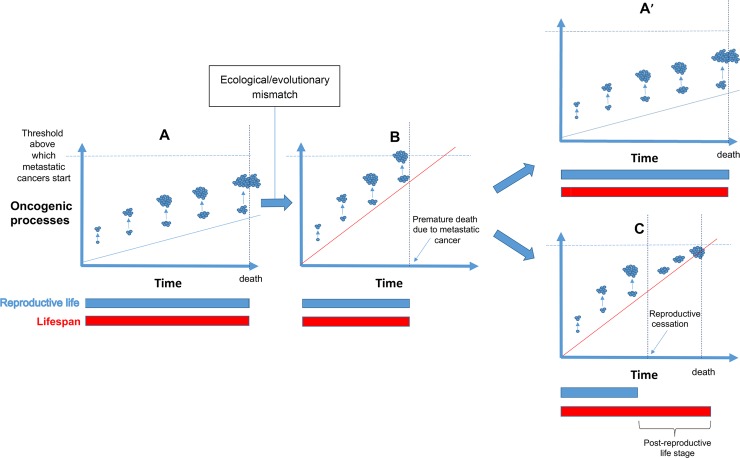Fig 2. Evolution of postreproductive life stage in relationship with the balance between cancer defense and cancer risk.
(A) In species possessing cancer defenses in alignment with cancer risks, oncogenic lesions only slowly accumulate through time (blue line). Even if reproductive episodes exacerbate the growth of existing tumors (blue circles), they are not sufficient to induce metastatic cancers: reproduction occurs throughout the life span, and the fitness is maximal. (B) When cancer defenses are too weak, given cancer risks (because of ecological and/or evolutionary mismatches), oncogenic processes rapidly accumulate (red line), and reproductive episodes can prematurely induce metastatic cancers in aging females, with a short life span and a low fitness as a result. Natural selection can (1) favor in these species the evolution of stronger cancer defenses, yielding again to a situation comparable to (A), here (A’), but also (2) favor females ceasing their reproduction prematurely to preserve their health (C). In that case, females’ fitness is higher than in (B) because a post-reproductive stage permits grandparental care, which enhances inclusive fitness. The (C) scenario can be just a transient situation until additional cancer defenses are selected and bring back the species to the (A/A’) situation.

